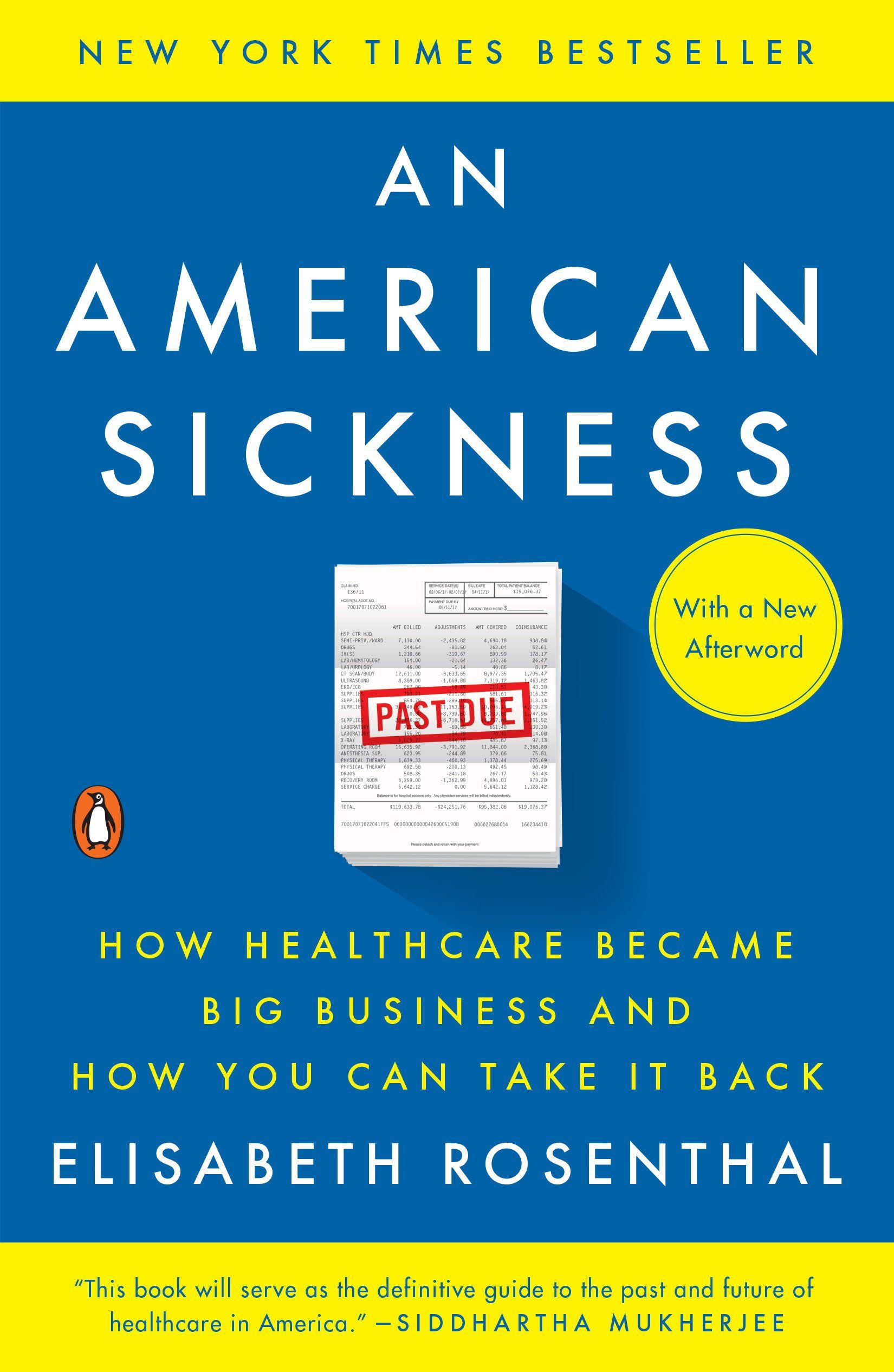A Review of "An American Sickness: How Healthcare Became Big Business and How You Can Take It Back"

Elisabeth Rosenthal accomplishes the seemingly impossible: she’s created a digestible and oftentimes heartfelt guide to the American health care system. Statistical analyses, facts, and financial data litter the book, but with Rosenthal’s ability to seamlessly weave personal accounts and her sharply written “Economic Rules of the Dysfunctional Medical Market” throughout the book, readers can feel emotionally invested in the political football that is our country’s health system.
Health care is often treated as a partisan issue, but so clearly transcends politics: everyone needs it. Rosenthal—a doctor and editor-in-chief of Kaiser Health News—comes at our flawed system as someone in the fold and speaks from experience.
Tackling issues like insurance availability, prescription and testing costs, medical billing, and the hospital industry, An American Sickness provides basic understandings with the help of stories from real individuals. These personal tales are injected thoughtfully, with intent. There’s no room for the interpretation on the reader’s part. No one will side with the hospital in Seattle that charged a woman’s insurance company more money for her less-than-a-day of services to remove a dangerous ectopic pregnancy than her two-day stay after her C-section years prior.
In the chapter titled “The Age of Pharmaceuticals”, we learn of the corruption surrounding skyrocketing drug prices. Years ago, generic anti-nausea drugs became difficult to get. Allegedly, someone had purchased the plant that produced the drugs and shut it down. The FDA then issued a warning that linked the generic anti-nausea drugs to dangerous arrythmias.
When doctors pushed for a Freedom of Information Act to study the documents that pressed the FDA toward its decision, they discovered that the abnormal heart rhythms occurred when doses from 50 to 100 times those typically given in the U.S. were used. The same problems arose when those doses of newer anti-nausea drugs were given, but since the older drugs had been issued the warning, hospital risk managers shied away from purchasing the generic brands. What formerly cost $2 to $3 skyrocketed to $149.
Rosenthal peppers her rules throughout, bringing us out of the misery that our health system can invoke and reminding us that this is not simply a series of recollections or stats, but a guide on how to not allow these circumstances to happen to you. She wants to arm you with the tools to navigate our greedy health industry, to get only the necessary treatments, to avoid surplus charges, and to steer clear of detrimental financial burdens.
Knowledgeable and sharp, An American Sickness is truly a user-friendly guideline for the average person. No one wants to prepare for the worst, but Rosenthal’s book is more punchy than dense, making her tactics and advice memorable. Remember: “Hospitals and doctors get away with unconscionable prices and practices because they think patients will be too timid to call them out on their greed, but they are very sensitive to bad publicity, to being exposed, or to the prospect of losing the confidence and support of a big local employer.”
With this book, Rosenthal gives you the power to fight.
An American Sickness by Elisabeth Rosenthal is the current selection for the Politics for the People Book Club hosted by Cathy Stewart of Independent Voting. A conference call with the author will take place on December 2 at 7:00 pm EST. Join the conversation at (641) 715-3605 with code 767775# and follow the blog at Politics 4 The People.
Editor's Note: This month's guest columnist is Kayla Shifter. Kayla is an administrative assistant at Independent Voting, a writer, and an artist.

Photo Credit: sheff / shutterstock.com




